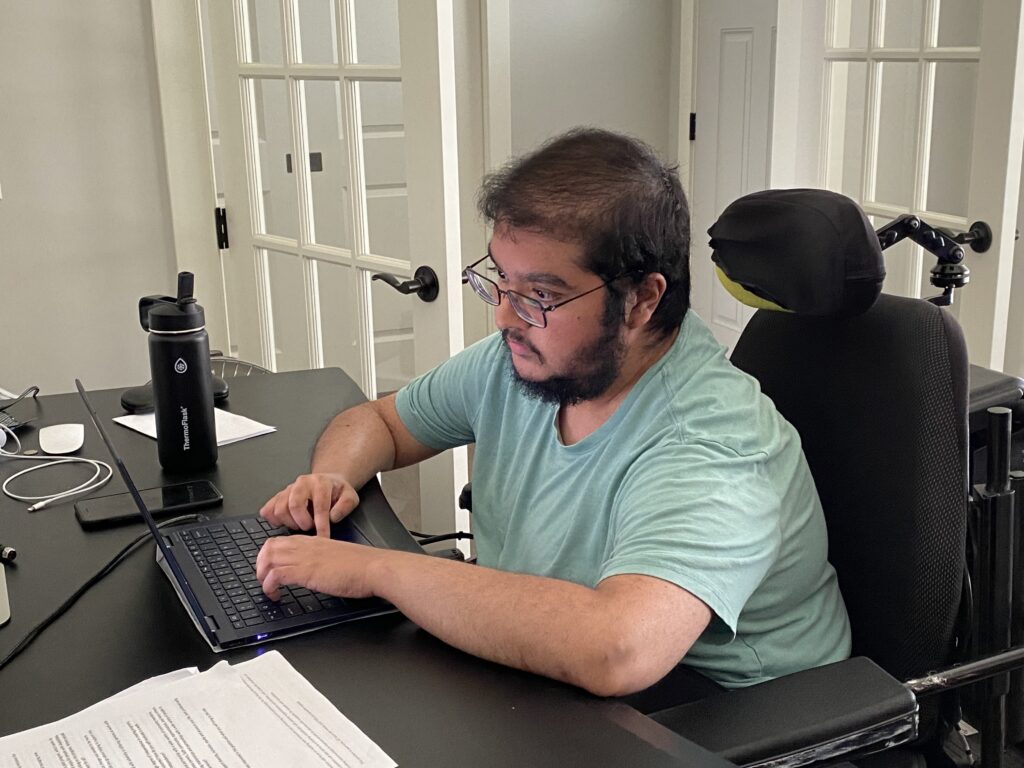 My name is Sumukha Terakanambi, and I am a Policy Consultant with the Minnesota Council on Disability. For the last few years, my goal has been to gain full-time employment as a disability and healthcare policy advocate. In addition to giving me opportunities to pursue what I am interested in, I view employment as a path to achieving more independence, participating in the community, and building financial security. As a person with a disability, I have the desire and ability to work like anyone else. Unfortunately, I – and so many others with disabilities – still face negative stereotypes and systemic barriers when searching for employment.
My name is Sumukha Terakanambi, and I am a Policy Consultant with the Minnesota Council on Disability. For the last few years, my goal has been to gain full-time employment as a disability and healthcare policy advocate. In addition to giving me opportunities to pursue what I am interested in, I view employment as a path to achieving more independence, participating in the community, and building financial security. As a person with a disability, I have the desire and ability to work like anyone else. Unfortunately, I – and so many others with disabilities – still face negative stereotypes and systemic barriers when searching for employment.
This is the first in a series of seven blog posts exploring the major barriers to employment for people with disabilities across the state.
- An Overview
- A Lack of Information about Supports
- Stereotypes and Denying Accommodations
- A Lack of Accessible Transportation
- Support Programs that Discourage Work
- A Lack of Legal Supports
- Conclusions
Current State of Disability Employment in Minnesota
During the 2023 legislative session, members from both parties came together to pass the most disability-focused legislation in the state’s history. Among the accomplishments were bills promoting competitive integrated employment. In competitive integrated employment, people with disabilities work alongside non-disabled people and make at least minimum wage.
Despite the legislative accomplishments, Minnesotans with disabilities continue to have higher rates of unemployment and poverty. Barriers to employment in Minnesota remain. The most significant are:
- Lack of reliable information about available supports
- Denial of reasonable accommodations because of stereotypes
- Limited transportation options
- Support programs that discourage employment
- Insufficient legal support to fight discrimination.
These barriers deny people with disabilities equal access to opportunities, a core promise of the Americans with Disabilities Act (ADA). If Minnesota wants to build on the success of the 2023 legislative session, disability advocates and elected officials must do more to improve employment outcomes for people with disabilities.
Coming Next
The other five blog posts in this series will address these barriers and potential policy prescriptions. Using the personal stories of self-advocates and disability experts, I will illustrate the struggles people with disabilities face in securing the resources and support they need to find and maintain employment. I hope these blog posts will give you a glimpse into the work we still need to do to achieve full disability inclusion.